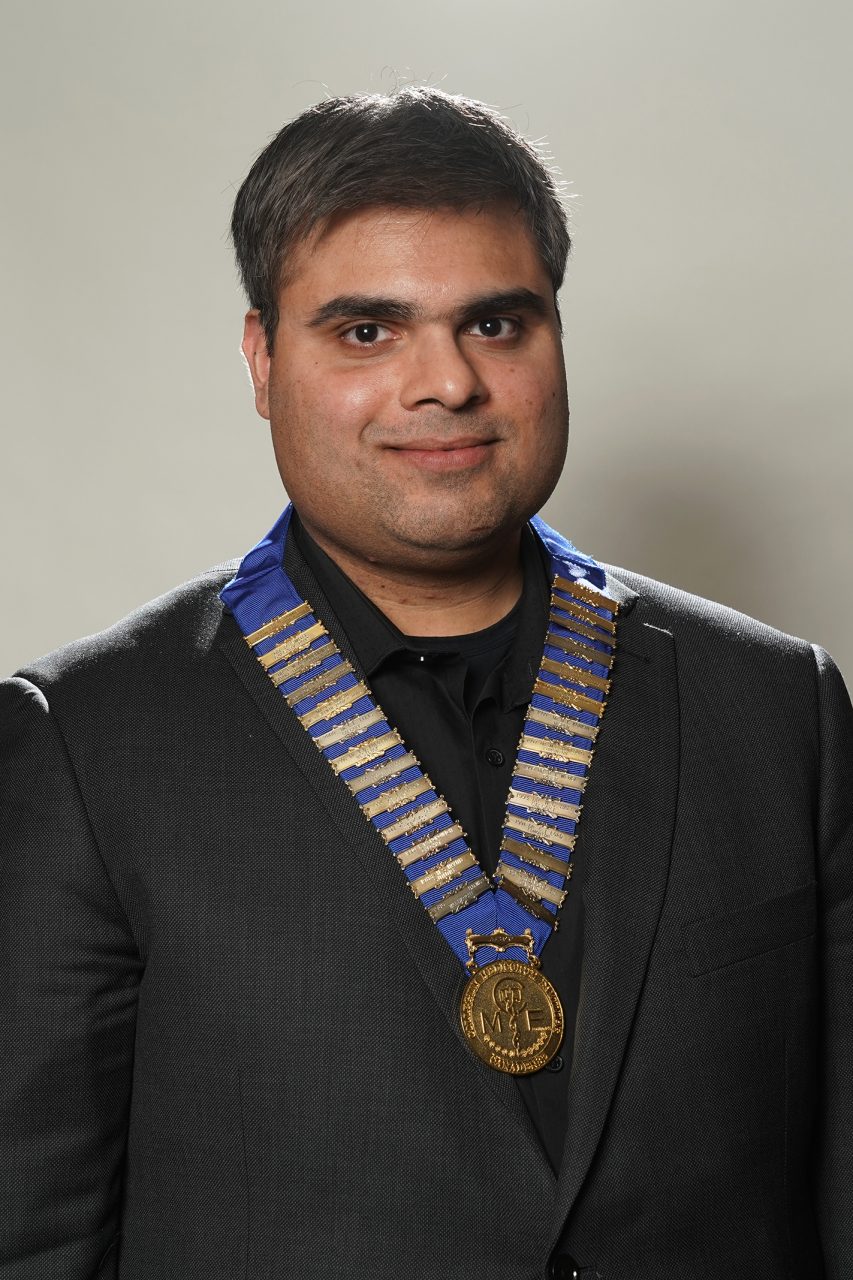My Friends and Colleagues,
Forming relationships, finding common ground, understanding the perspectives of others – these are all core components to the practice of Family Medicine. This is a set of skills we acquire in training and enhance in practice. For many of us, it defines the core of how we interact with others, not only in our clinical practices but, in life, in general.
To this point, I have tried to look at the circumstances facing our profession and our relationship with the government in the same way. We may not see eye to eye on all issues, but there must be some room for collaboration, understanding each others’ perspectives, and finding common ground on a way forward.
I have held on to the belief that we all have the same end goal in common— wanting to preserve and improve the care our patients across the province receive, in a way that is fiscally responsible but fair to those who take the responsibility of delivering this care day in and day out. While there may be differences in the perception of the path needed to get there, a common goal should enable us to ultimately work toward the same final destination.
However, what happens when common ground cannot be found? As a physician in practice, the answer to that question has always been a challenge. It is uncommon to have a situation where the ideological values of the physician and patient are so divergent that some form of common ground cannot be found. However, when it does happen, it often becomes clear that the two parties need to diverge and move on.
Unfortunately, I am starting to wonder if the profession faces the same question with the government. Is there such a divide in approach and ideology that common ground cannot be found? Terminating the master agreement, breaking off negotiations with the Alberta Medical Association (AMA), changes that impact rural practitioners and urban practitioners differently, and changes that impact family physicians and specialists differently are elements that have the potential to divide the unity of a profession which is built on the principles of looking after the needs of others.
This is an attempt to prevent physicians from responding to change and decisions they had no say or control over —changes that were unilaterally placed on the profession in the absence of negotiation. It is akin to someone breaking the foundational pillars of your home and blocking the doors so you cannot escape.
Physicians are an essential service provider that support the well-being of the public. We do not take job action; we do not strike. Our only mechanism to be treated fairly is to negotiate collectively through an organization that represents us. Attempts to weaken the AMA, including terminating the master agreement and removing administration of medical liability reimbursement, are steps to break unity and weaken the mechanism of representation that we do have. Our ability to have a say in our own working parameters and conditions is being pushed aside. It is only fair that we be able to have a representative voice that negotiates on our behalf, access to arbitration when needed, and that our profession can be a part of the discussions and decisions that impact how we are funded and the system in which we work.
Amongst recent announcements are concepts that strengthen private enterprise in providing care to the population. There are also elements that threaten the ability of the profession to self-regulate. Today’s pressure from the Minister of Health directed at the College of Physicians and Surgeons of Alberta (CPSA) is a step that clearly aims to detract from the ability of physicians to work and make decisions in autonomous fashion.
This is an attempt to prevent physicians from responding to change and decisions they had no say or control over—changes that were unilaterally placed on the profession in the absence of negotiation. It is akin to someone breaking the foundational pillars of your home and blocking the doors so you cannot escape.
If decisions and actions directed toward practising physicians from the government prevent them from practising in sustainable fashion, how logically can this be followed by attempting to prohibit them from leaving such a circumstance. There is plenty of guidance that already exists in terms of changing or leaving practice, and physicians who have made decisions to change the direction of their practice profile have been following these regulations and providing appropriate notice to their communities. Attempting to have the CPSA step in and prevent a physician from changing an unsustainable practice model is a drastic overstep by the Ministry in trying to push a mandate on physicians.
Through this entire process, all physicians really want is the ability to collaborate and participate in shared decision making. It is the essence of the training that we receive. The release of the July 1 AMA proposal to government indicates a willingness to work within the financial considerations facing the government. Unfortunately, shared decision making cannot occur when one side aims to direct and decide without input or advice from those impacted. Right now, the ball is in the court of policy makers, I encourage everyone to look at the end goal, and get back to collaborating. A failure to do so now will have a detrimental impact on the profession, on the health care system, and most importantly on the patients and communities we strive to serve.
With sincerity,
Vishal Bhella MD, CCFP
President Alberta College of Family Physicians


One Response
Dr. Bhella;
I am the legal counsel for the AMA and have been provided with a copy of this letter for my review. I am very impressed with your passion and your capable presentation of your position in a logical and consise fashion. Thank you for preparing and publishing this letter.
Jonathan Rossall Q.C.